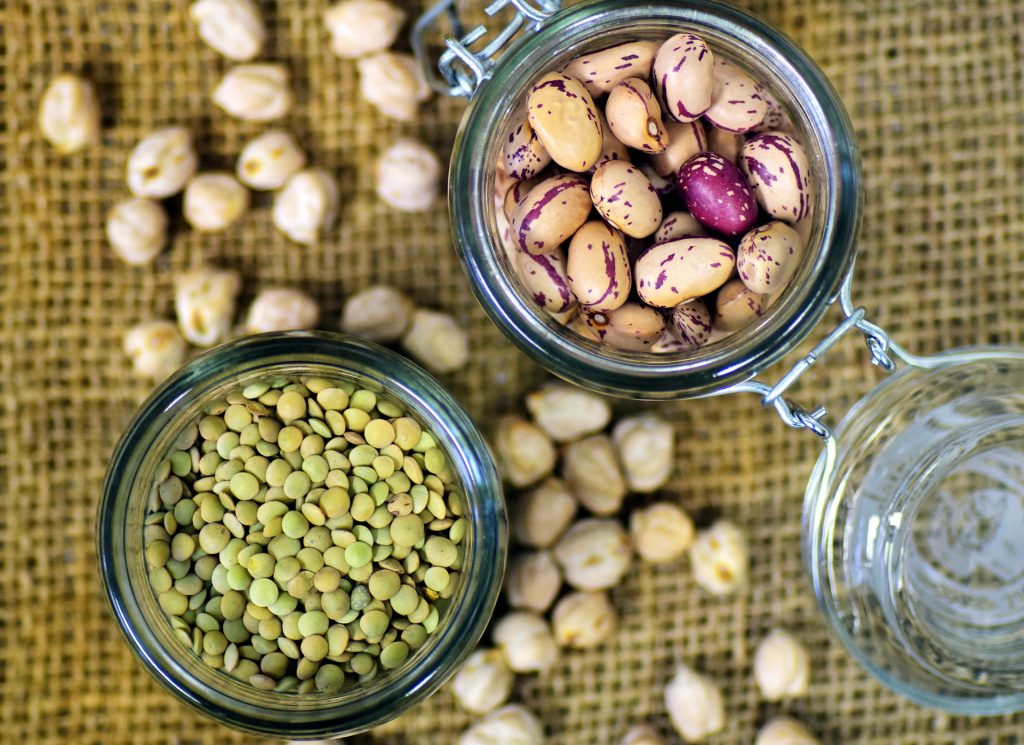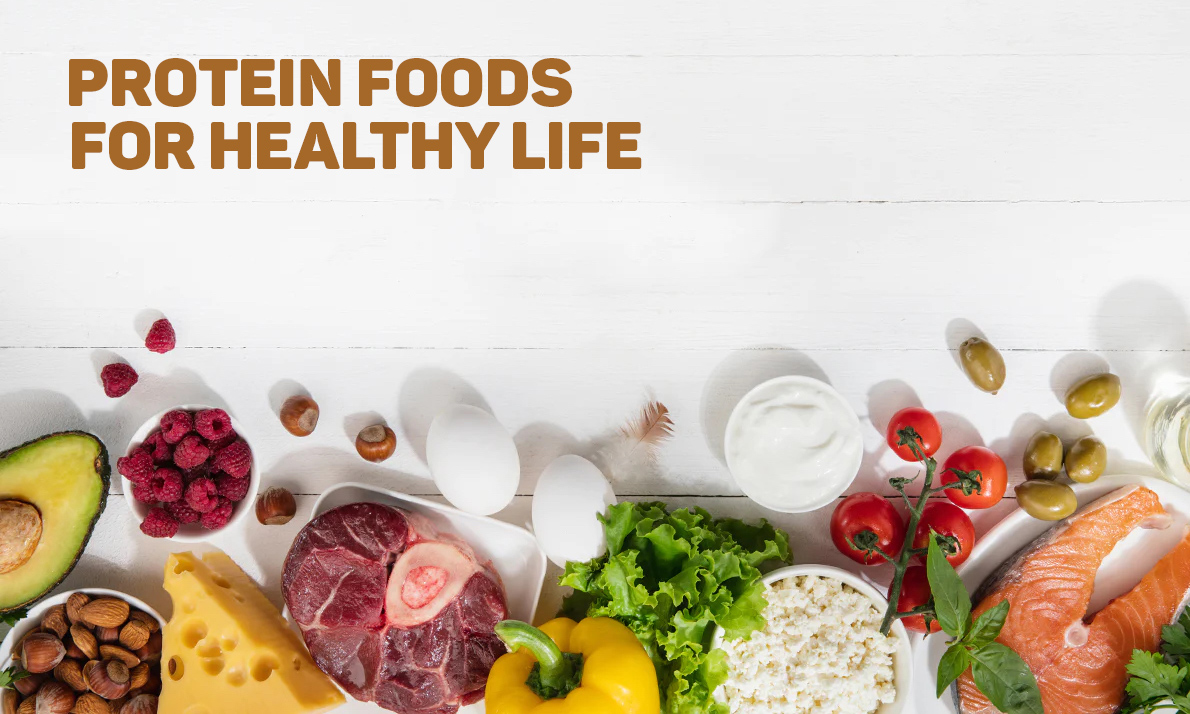Protein is an indispensable nutrient for individuals of all ages and health objectives. The vital role it plays in our bodies is extensive, extending from muscle development to hair growth, as well as promoting healthy bones and teeth. In this post, we will see and understand why we should eat protein foods for healthy life
Recent studies indicate that the quantity of protein required is not the only factor to consider but also the timing of its consumption. Ensuring your children, and yourself, receive a regular intake of protein-rich foods at each meal, particularly breakfast, is crucial.
Starting the day with a sufficient protein intake can aid in feeling satiated for a longer period. Moreover, evidence reveals that a wholesome breakfast aids children’s ability to concentrate and stay focused in school.
This article aims to elucidate the essentiality of this crucial nutrient and why breakfasts rich in protein are beneficial for both you and your children.
Understanding Protein
Protein, together with fats and carbohydrates, is one of the three macronutrients, which supply our bodies with the necessary energy or calories. Long hailed as the bedrock of the body, the term ‘protein’ is derived from the Greek word ‘protos’, signifying ‘first’. Contemporary research has identified more than 30,000 types of proteins in our bodies. Each protein, created from building blocks known as amino acids found in protein-rich foods, is unique. There are nine ‘essential’ amino acids that our bodies can’t synthesise on their own and are necessary for survival. High-quality protein sources such as milk, meat, or fish comprise all these essential amino acids.
The Role of Protein
The prominence of protein continues to grow; it’s a nutrient sought after by many striving to meet their daily protein necessities. The reason is, protein is a versatile component performing numerous significant functions in our bodies. In essence, protein is a constituent of every cell in your body.
Including adequate protein in a healthy breakfast can assist in:
- Promoting Lean Muscle: Protein provides your body with the requisite amino acids for building robust muscles. Alongside regular physical activity, an adequate protein intake aids in muscle development and repair.
- Enhanced Satiety: Protein has a stronger impact on feeling satisfied than carbohydrates or fats do. Including enough protein at breakfast can prevent mid-morning hunger pangs.
- Boosting Energy and Focus: Starting your day with a high-protein breakfast can energise your morning. Many specialists recommend adults incorporate 25 to 30 grams of protein in their morning meals. Though recommendations vary for children, it’s vital they also consume a sufficient amount of high-quality protein at each meal. Ensuring children consume enough protein at breakfast aids their focus and concentration at school.
- Supporting Bone Health: Alongside crucial bone-building nutrients like calcium and vitamin D, protein also contributes significantly to healthy bone development.
- Maintaining Healthy Weight: Protein plays a role in managing a healthy weight. As part of a balanced, calorie-controlled diet, protein contributes to lean muscle mass and less fat accumulation. It’s worth noting the type, amount and timing of your protein intake.
You should make sure you’re eating enough protein every day for at least these five reasons:
- Build- Protein is a fundamental component of skeletal tissue, muscle, cartilage, and skin. Both your hair and your nails are primarily made of protein.
- Repair- The protein helps your body fix and replace damaged cells.
- Boost your oxygen levels. There’s a special protein in red blood cells that carries oxygen all over the body. The nutrients your body needs can be supplied in this way.
- Retain and process the information. About half of the protein you eat every day goes toward building enzymes that aid in digestion and creating new cells and chemicals in your body.
- When it comes to hormone regulation, protein is king, especially during the cellular changes and growth that occur during puberty.

Animal Source of Proteins
| Food Type | Example | Protein Content (g) per 100g |
| Meat | Chicken breast (grilled, without skin) | 32.0 |
| Pork chop (lean, grilled) | 31.6 | |
| Beef steak (lean, grilled) | 31.0 | |
| Lamb chop (lean, grilled) | 29.2 | |
| Fish | Tuna (canned in brine) | 24.9 |
| Salmon (grilled) | 24.6 | |
| Cod (baked) | 23.9 | |
| Mackerel (grilled) | 20.3 | |
| Seafood | Crab (canned in brine) | 18.1 |
| Mussels (cooked) | 17.7 | |
| Prawns (cooked) | 15.4 | |
| Eggs | Chicken egg (whole, boiled) | 14.1 |
| Dairy | Whole milk | 3.4 |
| Semi-skimmed milk | 3.5 | |
| Skimmed milk | 3.5 | |
| Cheddar cheese | 25.4 | |
| Reduced-fat cheddar | 27.9 | |
| Cottage cheese | 9.4 | |
| Plain Greek-style yogurt | 5.7 | |
| Plain low-fat yogurt | 4.8 |
Plant Source of Proteins
| Food Type | Example | Protein Content (g) per 100g |
| Pulses | Red lentils (boiled) | 7.6 |
| Chickpeas (canned) | 7.2 | |
| Beans | Tofu (steamed) | 8.1 |
| Kidney beans (canned) | 6.9 | |
| Baked beans | 5.0 | |
| Grains | Wheat flour (brown) | 12.2 |
| Rice (easy cook, boiled) | 10.9 | |
| Bread (brown) | 7.9 | |
| Bread (white) | 7.9 | |
| Pasta (dried cooked) | 4.8 | |
| Porridge oats | 3.0 | |
| Nuts | Almonds | 21.1 |
| Walnuts | 14.7 | |
| Hazelnuts | 14.1 |

